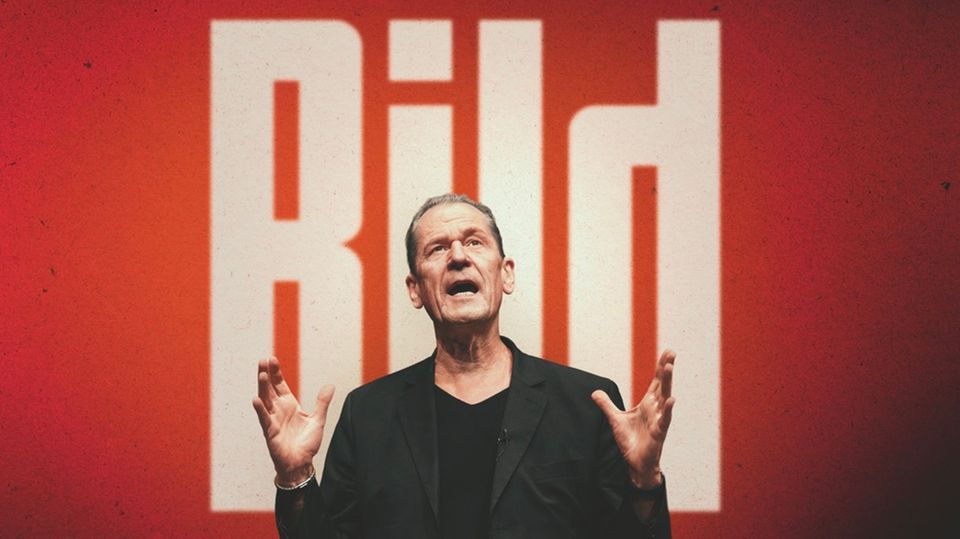The case of Til Schweiger shows that fear as a means of leadership has had its day. But not all film and media bosses have understood that.
By Mickey Beisenherz
Admittedly, I would also like to be called Emperor. That’s a very nice nickname. As a man slowly approaching 50, I like to take the fears of others with me when admiration or love are lacking. Fear is love’s sad flesh substitute.
Unfortunately, I’m neither authorized to issue directives nor am I in charge of a company, yes, I don’t even have an assistant to whom I would say a sweaty “Still awake?” at night. could send. I can’t be found in any organizational chart. Never had the opportunity to express my backwards compatibility within a company hierarchy.
It is said that nervous bosses are picking up the phone again these days because a direct phone call leaves significantly fewer traces than a text message or e-mail. And the office’s own minibar hasn’t been touched for days, since blow-drying employees with red wine at eleven o’clock has gone a little out of fashion.
The last days of the journalistic patriarchate
At the rate at which senior public relations workers (there is no need to change gender here) are being exposed as problem bears and overthrown, one would like to assume that a kind of media Arab Spring is currently prevailing. The last days of the journalistic patriarchate. Heavy quake on the monkey rock.
Döpfner, Reichelt, now Til Schweiger.
About the latter, the picture of a tyrant was drawn in “Spiegel” who is said not only to have exceeded the alcohol limit. According to the report, there was apparently violence, intimidation and berserk behavior at the expense of regulated working hours, safety guidelines or simply: dignified coexistence.
Consequently, Schweiger is said to have only been called Imperator on the fearful film set. Which is also a missed opportunity considering the alleged alcohol abuse described by many witnesses: Johnny Skywalker would have done it too.
Nothing against the research work of “Spiegel”, but anyone who has followed one or two public appearances by Schweiger in recent years will have noticed that after the lunch break he only seems to have limited legal capacity.
The “Spiegel”, which on some days is also difficult to distinguish from the “Bunte”, outlines a man who gerhardschröders his way through endlessly long days of shooting and, so it reads, nobody could stop him – or should he? In any case, nobody at the responsible film company wants to have noticed anything special – and – admittedly: Schweiger was a bit difficult to understand even after enjoying a Capri sun.
The much greater miracle is: How could the man still succeed in such masterpieces despite this massive handicap? Schweiger productions, one has to assume, have recently shocked TÜV Rheinland more violently than cineastes.
It’s not 1983 anymore
The fact that all this juicy documentation can be read in the magazine, whose founder sometimes crawled drunk across the street in front of the publishing house or received secretaries in their bathrobes, is at least not without a certain comedy. But okay, that was a few decades ago.
On the other hand, it is exactly the point: we are currently experiencing the great reversal of an antiquated management philosophy. An artistic caste system that some men are finding out the hard way about the end of. It’s not 1983 anymore, and not everyone got the memo.
The fact that these rulers of their respective smaller or larger commercial caliphates are now being summoned before the people’s court one after the other: can we take that as proof that nobody is tough in art and journalism anymore? Aren’t diamonds only created under pressure? Yes, aren’t these hyper-sensitive times when trainees, crying after the first criticism, give up the job they only wanted to do four days a week anyway? That didn’t bother anyone before!
To be honest, I feel sorry for Schweiger, who, by the way, has denied the allegations. If they should be correct: It remains to be hoped that those around him will succeed in getting him back on track.
Why is it so late in hearing about such allegations?
This cartel of silence, however, is an example of a systemic problem that is increasingly encountering the realities of modern times.
One can only guess how many follow these developments with belated satisfaction. How many feel the satisfaction of having endured years of oppression among berserkers who derive art not from skill but from servants.
There must be many who couldn’t wait for the improbable day when justice might yet come. They were silent for obvious reasons.
But it is also a little surprising that no one from a position of strength once said: Dear public, something is going terribly wrong here. I am resigning from this system. Have you heard that a lot in recent years? – Not me.
If we look at the public statements about Döpfner or Schweiger, it is a little regrettable that many a companion only seems to realize at the end of the value chain who they actually got the money from.
As long as the monster lays eggs, nobody asks what it gets to eat
The readership usually registers this with pleasant horror: Oh, that’s how they’re on it, right? I thought so! Sex, crime, abuse of power, drugs, alcohol. Friend and foe are clearly defined, especially when Sauron Springer is also involved.
These stories are not only of legal interest. They are incredibly popular to read and suddenly have just as much a place in the arts pages as they do in the nail salon. Everyone can sympathize here.
It is logical that the newspapers and magazines are researching themselves sorely to get some murmuring as a story, in order to finally present the German Harvey Weinstein at some point. And if not really hard, then at least, well, poached.
Say what is. And what could have been. In terms of journalism, this is a gold mine. Sometimes work is done like on the Schweiger set: When intoxicated, the first victim is accuracy.
There are still hundreds of stories like this waiting out there from bosses who didn’t manage to make the spiritual and moral change because they themselves learned this corporate culture and in all their limitations don’t know anything else or don’t want to know anything else. From where?
Broadcasters, shareholders, film companies let them do their thing as long as they are profitable. As long as the monster lays eggs, nobody asks what it actually gets to eat.
And so they still sit in jury chairs and in comedy shows or lounge on the benches in Borchardt and can trust that they are safe as long as more money comes in than outrageousness goes out.
Mega.




